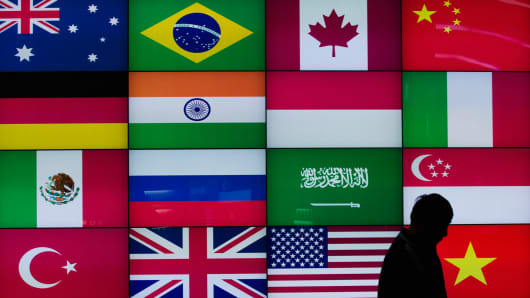So it's time to talk Turkey. Two months into its Presidency of the G-20 and the roadshow has its first big pow-wow of 2015 with finance ministers and central bank governors in Istanbul. After the mighty big promises of Brisbane -- where Prime Minister Tony Abbott bragged that the global superpowers had reached agreement on hundreds of measures to save the world economy -- it's Turkey's turn to keep the momentum going.
But has Turkey been handed a baton or a poisoned chalice? Ostensibly Turkey will have inherited a firm set of commitments from the leaders of countries representing 85 percent of world economic output that can now be implemented. Yet, is that set of solid commitments more akin to a snapchat photo that is fast disappearing from reality?
I get the impression that the Turkish Government is fully aware of the hand it's been dealt and as such has gone big on implementation of previous promises from Brisbane and before. Prime Minister Ahmet Davutoglu's message speaks of the need for 2015 to be a year of "deeds" rather than making even bigger promises of the sort we heard in Brisbane.
So what are the chances of delivery on the $2 trillion worth of promises outlined by Abbott? On the commitments to: create millions of jobs, add 2 percent to global GDP, eradicate poverty and finally reduce inequality?





